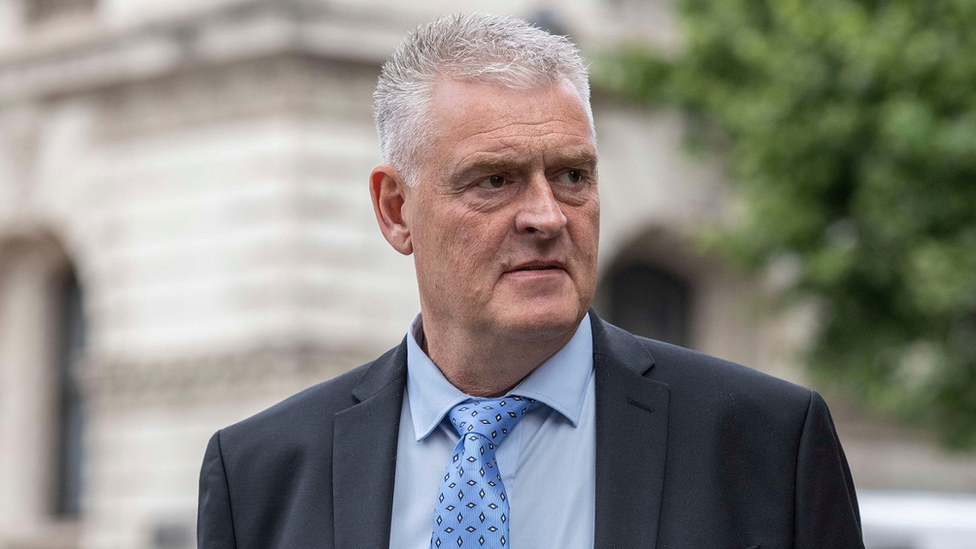Lee Anderson defection lends momentum to Reform UK
- Published
Mr Anderson previously called for MPs changing parties to call a by-election, but says it would be "foolish" in his case
The first clue something was up came at a minute past six o'clock this morning.
Reform UK flagged that a "major announcement" was coming a few hours later, at the Grade II listed Institute for Civil Engineers just off Parliament Square.
It wasn't in the windowless basement of a hotel in Victoria, where us reporters were called to to meet the party in the new year.
This was a more grandiose backdrop: the Smeaton Room, with its chandeliers and portraits.
"Not a wolf crying this time," a party source said as we began to anticipate what might be going on.
At 10.30 in strode a perma-smiling Richard Tice, the Reform UK leader - and, minutes later, the suspended Tory MP Lee Anderson.
The former Labour councillor, turned Conservative party deputy chairman, and now first-ever MP for Reform UK.
Only a matter of weeks ago, Mr Anderson was recording a campaign video with the prime minister in his old primary school.
And now this.
When two former Conservative MPs defected to UKIP, a predecessor to Reform, they each called by elections.
And Douglas Carswell and Mark Reckless each won those by-elections for UKIP.
Mr Anderson has previously backed moves to make it obligatory for defecting MPs to face a recall petition, giving local voters the chance to force them out and trigger a by-election.
But he told me won't be calling a by-election in his patch, Ashfield in Nottinghamshire.
Why? The general election is too close, he claimed, and it'd be a waste of money.
Creating momentum
So, how big a deal is this defection?
After all, the most important people in a democracy are those who are willing to change how they vote.
But Westminster is a deeply tribal place.
Parties hate it when one of their own crosses the floor.
That said, in this instance Lee Anderson was arguably half-way there.
The Conservatives had flung him out of the parliamentary party over remarks about the London Mayor Sadiq Khan he refused to apologise for.
There looked to be little prospect of a route back to the Tory fold before the election.
The defection in and of itself matters beyond Ashfield for two reasons: it lends momentum to Reform, and punches an existing Conservative bruise
'Pound shop Farage'
Tory MPs fret that in addition to Labour's gargantuan poll lead, Reform's recent performances could make the Conservative defeat so many privately anticipate all the worse.
Lee Anderson now becomes the personification of that fear.
Not because many expect Reform to win many, if any, seats at the general election.
But because their capacity to do the Conservatives great damage is huge, tempting away a disproportionate number of former Tory voters and so potentially making it easier for Labour to win.
Indeed, this very argument and fear was articulated by none other than Lee Anderson himself a matter of weeks ago, when he also, incidentally, called his new boss, Reform UK leader Richard Tice, a "pound shop Nigel Farage".
Politics can come at you very fast.
Senior Conservatives are trying to brush this off as Lee Anderson making a big mistake.
But others, privately, reflect that it represents a crumbling of the broad coalition Boris Johnson assembled under the Tory tent in at the last election in 2019.
Related topics
- Published11 March 2024
